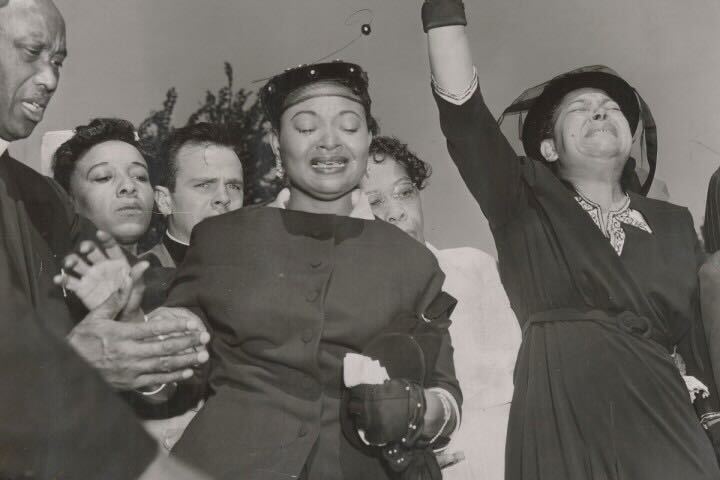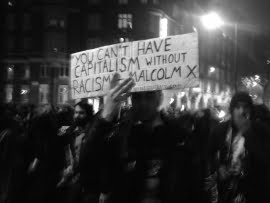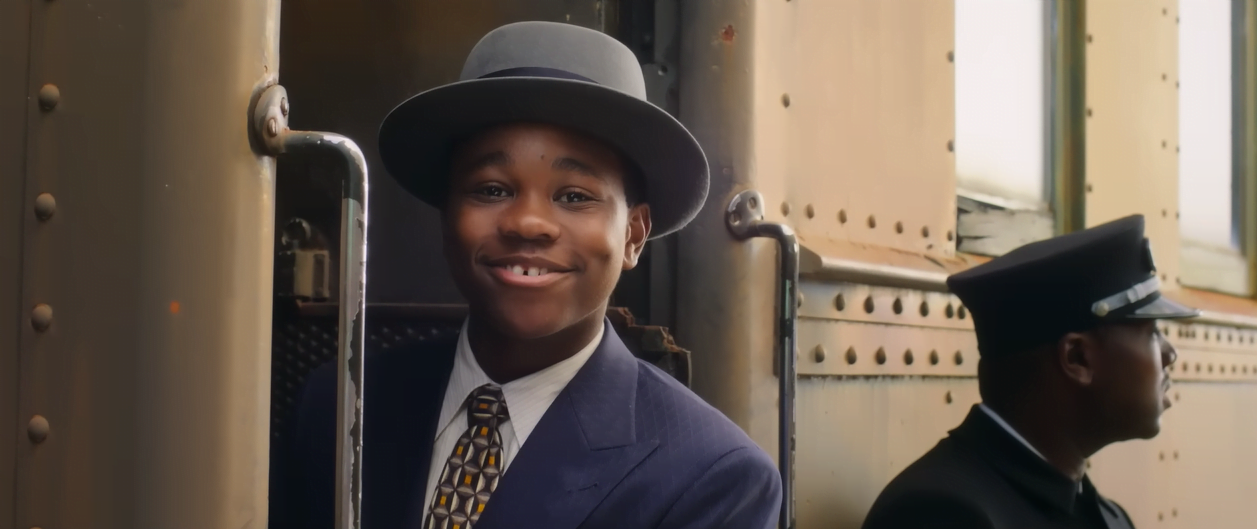Shot from the perspective of his mother, Chenonye Chukwu’s new film Till portrays the real events leading up to and following the lynching of 14-year-old Emmett Till in August 1955.
The movie opens with a scene of Emmett Till and his mother, Mamie, cheerfully singing in the car together. They are out shopping, getting ready for Emmett’s trip to visit family in Mississippi.
But while Emmett is excited about his summer holiday, Mamie’s anxiety hangs heavy, even during the film’s sunny beginnings. With her son having grown up in the relative security of their comfortable, all-black Chicago neighbourhood, she admits that she’s worried about how he will stay safe in the Jim Crow South.
As the audience already knows, her fears are soon to become a nightmarish reality. After allegedly flirting with Caroline Bryant, a white woman, Emmett Till is abducted and brutally murdered. His body is then thrown into a river, and would not be found for three days.
His murder is not shown on screen, but his screams, alongside lingering shots of Mamie witnessing her son’s mutilated body, make for harrowing viewing.
Justice system
 The rest of the film covers Mamie’s search for justice, with the support of civil rights organisation NAACP (National Association for the Advancement of Colored People).
The rest of the film covers Mamie’s search for justice, with the support of civil rights organisation NAACP (National Association for the Advancement of Colored People).
The first plan of action is to work through the legal system. But the trial of Roy Bryant and J.W. Milam for Emmett’s murder is a farce.
In the courtroom, their case is dismissed at every turn by an all-white, well-off jury. Black eyewitnesses are ignored, while Caroline Bryant faces no questioning when she insists that Emmett sexually harassed her.
This all comes as no surprise. The legal system has never been an unbiased institution, existing above society. Rather than operating in the interests of fairness and justice, it is a tool in the hands of the ruling class to protect its profits, privileges, and power.
As a result, Emmett’s murderers face no consequences. In fact, they even confessed to the killing in a magazine interview two years later, but still were not convicted.
Collective struggle
Protests are shown erupting across the country in the aftermath of this verdict.
In the timeline of the civil rights movement, Emmett Till’s death took place at – and contributed to – the start of a new wave of struggle, which lasted until the end of the 1960s. In contrast to decades of working within and through the courts, this stage of the movement was marked by mass protests, boycotts, and sit-ins to end institutional racism.
Just two months after the period covered by Till, for example, the year-long Montgomery Bus Boycott would begin in protest against the segregation of buses. This development demonstrated a rising class consciousness amongst black workers – including those who had a ‘nice apartment’ and a ‘good job’ like Mamie.
The film is sympathetic to those who saw no choice but to keep their head down in the face of constant, violent oppression. Emmett’s great-uncle Preacher, for example, allows his young relative to be taken in order to protect his own children, and is forgiven by Mamie for this.
But the movie also shows that there is another way: finding strength in unity and fighting back against racism collectively.
Capitalism and racism
At a post-trial rally in Harlem, Mamie appeals to the American ‘promise’ of freedom, which remains unmet for black people: “Either freedom for everyone, or freedom fails!”
Here, Till rightly emphasises the need for unity amongst the oppressed and exploited in society. Only in this way can we fight back against the ruling class’ attempts to divide us.
But as Malcom X explained: “You can’t have capitalism without racism.” Racism is baked into the foundations of capitalist society, permeating all its institutions, and acting as an essential weapon in the arsenal of the ruling class.
After all, despite the determination shown by those like Mamie in the face of unthinkable circumstances, and the heroic collective efforts of the civil rights movement, racism has far from been eradicated in the nearly 70 years since Emmett Till’s death.
Fight for socialism
 Till closes with a stark cut from the passion of Mamie’s rally speech to a haunting scene of her returning to her empty home and imagining the life she and her son may have lived. This grief and hardship remains all too common for many today.
Till closes with a stark cut from the passion of Mamie’s rally speech to a haunting scene of her returning to her empty home and imagining the life she and her son may have lived. This grief and hardship remains all too common for many today.
At the very end of the film, we are informed that in February 2022 lynching was at last legally classified as a federal hate crime, with the legislation named after Emmett Till.
Campaigners had been calling for this law for over a century. And in that time, countless others have joined the list of potential names to be memorialised.
But racism cannot be legislated out of the capitalist system. Instead, the best way to honour the memory of Emmett Till, and all those who came before and after him, is to fight for a socialist society where “freedom for everyone” can actually become reality at last.






